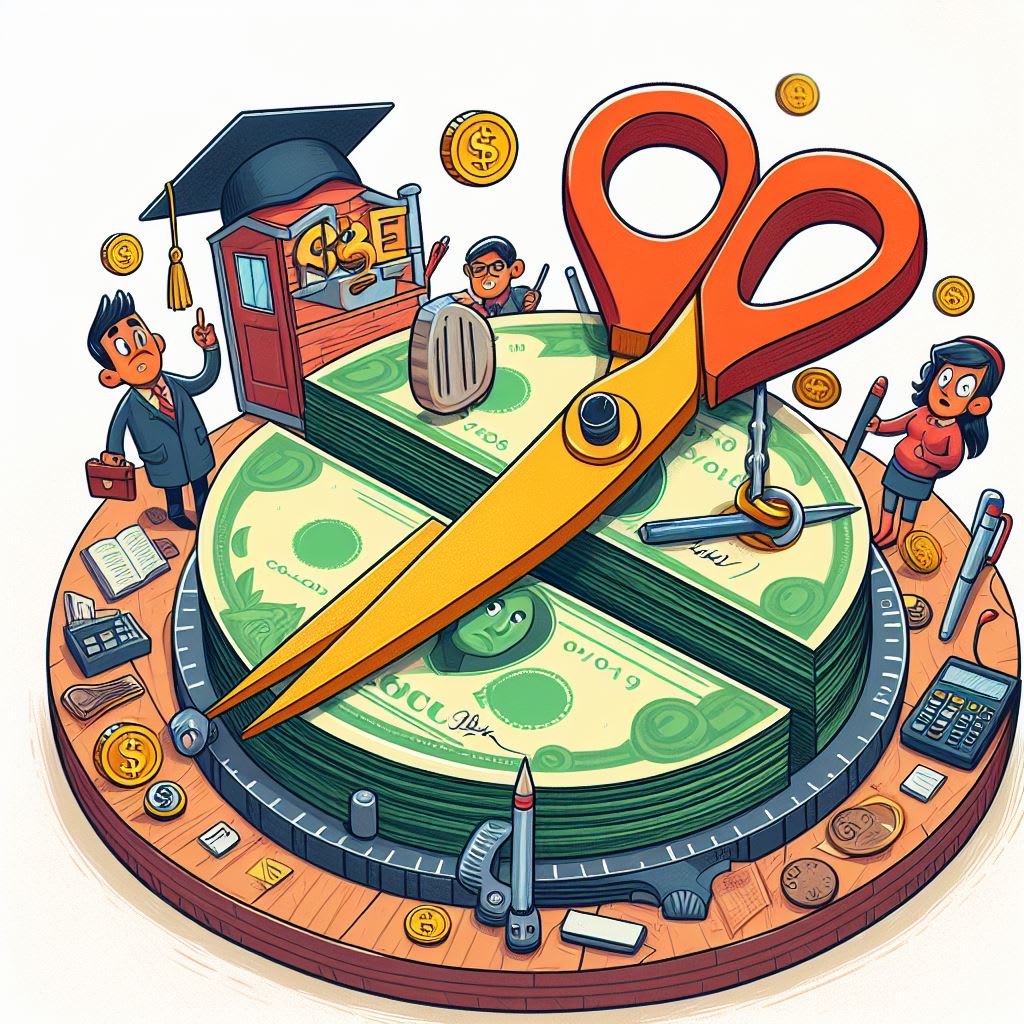Is College Still the Golden Ticket? This Single Program can Slash Tuition in Half
Choosing between higher education and other paths can be daunting, especially considering the evolving job market and rising tuition costs. With its diverse array of educational pathways, Washington further complicates the picture. While a college degree traditionally held the key to unlocking doors, today's reality demands a more nuanced approach.
Washington paints a compelling picture of higher education. Graduates here earn a staggering 67% more than their high school counterparts, boasting better job opportunities, higher employment rates, and increased access to benefits. The financial advantages are undeniable, with a college degree paving the way for a significantly higher average net worth and greater recession resilience.
However, the cost of admission isn't for the faint of heart. Public universities, averaging around $20,000-$30,000 yearly, are a significant investment, and private institutions can push that figure even higher. Student loan debt, averaging $28,950 nationally, casts a long shadow, potentially delaying milestones like homeownership or starting a family.
Beyond the Traditional Path
Fortunately, Washington offers a treasure trove of alternative paths. Community colleges provide affordable pathways to associate degrees or career certificates, often at a fraction of the cost of a four-year institution. Trade schools equip students with in-demand skills for high-paying trades, like electricians, with a median income exceeding $56,000. Coding bootcamps offer intensive training for tech careers in a fraction of the time and cost of a traditional degree, opening doors to lucrative opportunities.
The equation doesn't just involve credentials. Practical experience gained through internships, volunteering, travel, or even hobbies, is increasingly valued by employers. This "learning-by-doing" approach builds a different kind of intelligence – experiential intelligence – that complements traditional academic knowledge. Companies like Google recognize this, offering job-specific training certificates for as little as $100.
The decision of whether or not to pursue a degree in Washington comes down to a personal cost-benefit analysis. Consider your career goals, financial resources, and risk tolerance. If a high-paying, traditional career path is your ambition, a college degree remains a valuable asset. However, if practicality and affordability are your priorities, explore alternatives like community colleges, trade schools, or online programs.
Now that you've grasped the multifaceted educational ecosystem of Washington, with its alluring traditional degrees and diverse alternative pathways, it's time to chart your course to success. Remember, the key isn't simply choosing a path; it's taking ownership of your journey and navigating the financial hurdles that might arise. Whether you envision yourself in a bustling university lecture hall or honing your skills at a trade school, the question of affordability remains crucial. But don't let financial anxieties overshadow your aspirations! Washington has your back with the GET College Savings Plan, a powerful tool that can ease the financial burden and empower you to pursue your chosen path. In the next section, we'll delve deeper into the GET Plan's magic, exploring its benefits, flexibility, and how it can become your secret weapon in conquering the cost of education and achieving your academic goals. Remember, a single path doesn't define your future success; your unique talents, aspirations, and the resources at your disposal fuel it. So, let's embark on this journey together, where the GET Plan becomes your compass, guiding you toward financial security and educational fulfillment.
Unleashing the Power of the GET Plan: Your Key to Education Affordability.
So, you're dreaming of college life in Washington (or any college in the nation participating in Federal Funding programs!), but tuition prices have you feeling like scaling Mount Rainier? Hold on tight, future Mountaineer, because this article has the key to unlocking a financial fortress: the Washington GET College Savings Plan.
Let's face it, Washington colleges, while amazing, aren't cheap. Public universities average $20,000-$30,000 yearly, and private institutions can skyrocket past $50,000. Factor in living expenses, and the sticker shock can be enough to send even the most ambitious student packing for a gap year in Antarctica.
Enter the GET Plan: Your Cost Guardian
This isn't just any savings plan; it's a magic shield against rising tuition costs. Here's why it's the ultimate weapon for Washington students:
- Guaranteed Value: Forget tuition hikes! Your GET account value locks in the cost of Washington's highest-priced public university tuition, no matter how much it climbs in the future.
- Security Blanket: No stock market jitters here. Your savings are backed by the ironclad guarantee of the State of Washington. Sleep soundly knowing your future education is secure.
- Versatility Champion: Use your GET units at any accredited institution nationwide, not just in Washington. Community college, private university, even an underwater basket-weaving academy in Fiji – the GET plan travels.
- Tax Perks Galore: Grow your savings tax-free and enjoy tax-free withdrawals for qualified education expenses. Think of it as your own personal Robin Hood, redistributing wealth from Uncle Sam back to your educational pursuits.
- Flexibility Friend: Need a break from academia? No problem! Hold onto your GET units for graduate school, retirement, or even transfer them to another beneficiary. This plan adapts to your life, not the other way around.
- Easy as Pie: Anyone can open a GET account, and there's no minimum contribution. Start small with monthly deposits or go big with a lump sum – it's all up to you.
But Wait, There's More!
The GET plan isn't just a shield; it's a sword too. Here are some ways to maximize its power:
- Start Early: The sooner you start saving, the more time your money has to grow. Think of it as compound interest on your dreams.
- Consider Scholarships and Grants: Stack the GET plan with other financial aid options to create an impregnable financial fortress.
- Explore Alternative Paths: Community colleges offer affordable associate degrees, and trade schools train for high-demand jobs – consider all options before committing to a four-year degree.
Conclusion
The GET program is a clever way to outsmart rising college costs. Instead of paying by semester, you buy "units" that cover tuition and fees. As of now, each unit costs $120, which translates to $12,000 for a year of school (100 units). Talk about savings! That's significantly lower than the national average of $25,000 per year.
College dreams shouldn't be crushed by tuition nightmares. The Washington GET College Savings Plan is your secret weapon, offering guaranteed value, security, and flexibility. So, grab your financial sword and shield, slay the cost dragon, and conquer your college dreams in Washington! This is just a starting point. Research specific colleges, financial aid options, and alternative paths to find the right fit for your goals and budget. With careful planning and the GET plan by your side, you can scale any financial mountain and reach your educational summit.
Author: Stephen Miller, 12.27.23
The views, information, and opinions expressed in this article are those of the author(s) and do not necessarily reflect the views of livingonwhidbey.com, its subsidiaries, or its parent companies.
Copyright © 2023
references:
CNBC. "Is College Still Worth It? What the Research Shows." https://www.cnbc.com/2023/03/01/is-college-worth-it-what-the-research-shows.html. Accessed 27 Dec. 2023.
Public Policy Institute of California. "Is College Worth It?" https://www.ppic.org/publication/is-college-worth-it/#:~:text=Today's%20labor%20market%20increasingly%20rewards%20highly%20educated,to%2090%%20for%20workers%20with%20graduate%20degrees). Accessed 27 Dec. 2023.
Forbes Advisor. "Is College Worth It? A Comprehensive Guide." https://www.forbes.com/advisor/education/student-resources/is-college-worth-it/#:~:text=2.,or%20less%20before%20the%201980s. Accessed 27 Dec. 2023.
Harvard Business Review. "How Important Is a College Degree Compared to Experience?" https://hbr.org/2023/02/how-important-is-a-college-degree-compared-to-experience#:~:text=The%20Burning%20Glass%20Institute%20recently,41%25%20in%20just%20six%20years. Accessed 27 Dec. 2023.
Western Governors University. "College Now vs. Then: 10 Similarities and Differences." https://www.wgu.edu/blog/college-now-vs-then-10-similarities-and-differences1806.html#:~:text=Obviously%2C%20depending%20on%20what%20industry,Higher%20Education%20Act%20was%20passed. Accessed 27 Dec. 2023.
"Is College Worth It?" YouTube, uploaded by YouTube, 24 Feb. 2023, https://www.youtube.com/watch?v=lqE4-sMi6UQ. Accessed 27 Dec. 2023.
Washington State 529 College Savings Plan. "Getting Started." https://529.wa.gov/node/126. Accessed 27 Dec. 2023.
College Tuition Compare. "Washington State University Cost of Attendance." https://www.collegetuitioncompare.com/trends/washington-state-university/cost-of-attendance/. Accessed 27 Dec. 2023.








































































































